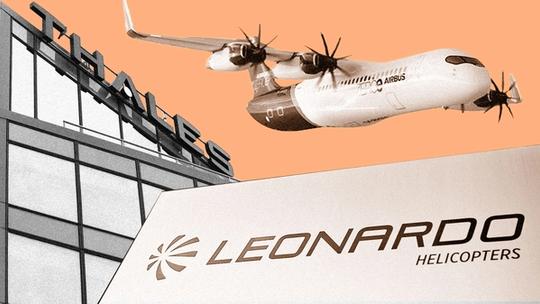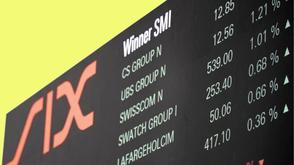Deals Surge as Europe Strives to Catch up With Global Rivals


After years on the sidelines, Europe is becoming a global dealmaking hotspot. Whether this wave leads to lasting champions remains to be seen.
- Global investors increasingly see Europe as undervalued, politically stable and rich in innovation.
After years of drought, Europe's merger and acquisition market is experiencing its strongest year in a decade – and American buyers are leading the charge.
The surge in transactions reflects a fundamental shift in how global investors see Europe. Today, buyers are seizing opportunities to diversify away from booming North American markets and snap up undervalued businesses in a politically stable environment. U.S. investors accounted for almost half of European deal value in the third quarter, up from more than a third in the prior three months, according to PitchBook.
"There's more economic optimism when it comes to Europe," says Matteo Thun-Hohenstein, a partner at EQT based in Zurich. "When it comes to innovation at an attractive valuation, Europe is looking increasingly interesting."
Dealmaking is on the rise as the continent confronts concerns that fragmented markets and restrictive merger regulations have prevented European companies from achieving the scale of American technology or Chinese industrial giants.
Recent deals are raising hopes that Europe is moving in the right direction in its bid to close the gap with rivals. Airbus, Leonardo and Thales in October reached an agreement to merge their satellite operations to challenge Elon Musk’s SpaceX. The creation of a European champion in this sector will help “reinforce our sovereignty in the context of intense global competition,” French Economy Minister Roland Lescure wrote in a Bluesky post. French media group Banijay, the owner of Betclic, followed with an agreement to buy a majority stake in German sports-betting business Tipico.
Rise in Megadeals
Multiple factors are converging in Europe: improving macroeconomic conditions, stabilizing financing markets, and increasing activity from U.S. buyers seeking to spread their bets globally. Interest rate cuts have also helped restore predictability.
Megadeals – transactions valued at over $1bn – accounted for 32 percent of deal value year-to-date, up from about 28 percent in 2024. That’s driven partly by lower borrowing costs, says Nicolas Moura, a senior EMEA private capital analyst at PitchBook.
Healthcare, which fell out of favor when rates were higher, is now on track for one of its best years of deal value in the last decade, Moura says. The sector’s recovery has been matched by a resurgence in technology, especially in software and AI.
Banks have been keen to lend again, “which has been helpful alongside plenty of private credit," says George Gray, a partner at Skadden, Arps, Slate, Meagher & Flom, a law firm.
U.S. private equity firms are finding acquisition opportunities in European markets that don't create the competitive overlaps they'd face at home. Gray points to growing activity in asset management and a new wave of deals between insurers and private capital providers to de-risk portfolios and expand their capacity to take on new business. The convergence of those sectors is fueling high-value, complex transactions, he says.
Jonny Myers, global head of private equity at law firm Clifford Chance, says robust balance sheets, narrowing valuation gaps and improved relative returns are drawing U.S. investors to Europe. “As long as dollar strength and favorable European pricing dynamics persist, we expect this capital flow to continue into 2026,” he says.
Geographic diversification also appeals to U.S. investors. Companies operating across Europe typically serve multiple markets, reducing concentration risk. And there's room to grow. “The European PE market is half the size of the North American market in terms of assets under management and as such offers some untapped opportunities. For this reason, we anticipate that this trend will continue in the near term,” Moura says.
European Champions
Dealmaker confidence in Europe returned to historic averages in September for the first time since 2022, marking an inflection point, according to consulting firm BCG. The Airbus and Banijay transactions are among more than $170bn of deals across Europe this year, according to Bloomberg. That’s 15 percent more than in the prior year and puts the continent on course for its strongest performance in three years.
M&A Sentiment by Region

The momentum should continue despite near-term uncertainties, according to Gray, with the pressure to distribute returns sustaining exit activity. The Skadden partner remains optimistic following earlier disruptions. "We've got a great pipeline,” he says. “We're firing on all cylinders at the moment, and we think that there's more to come.”
The EU is seeking to modernize its merger regulations and adopt a more flexible approach. EQT’s Thun-Hohenstein sees this as crucial. “Both the EU and many national governments have promised to increase the openness of the European market," he says.
That’s part of a broader push to ignite European growth following a 2024 report led by former ECB President Mario Draghi that highlighted Europe’s vulnerabilities, as well as its opportunities to catch up with the U.S. and China. A year after his analysis was published, Draghi urged policymakers to accelerate plans to overhaul merger rules.
Lasting Competitiveness
While more clarity about merger reform is still to come, Stavroula Vryna, competition partner at Clifford Chance, says an “evolving emphasis on competitiveness, innovation, and resilience is already reshaping the narrative.
“For dealmakers, this means preparing to defend transactions not only on traditional market metrics,” she says, “but also on their contribution to dynamic efficiencies, innovation ecosystems, and broader European industrial policy.”
The deals are happening. The capital is flowing. Whether this translates into lasting competitiveness may depend on policymakers' ability to reduce fragmentation and create an environment where European champions can emerge at global scale.
ThinQ by EQT: A publication where private markets meet open minds. Join the conversation – [email protected]
MoreInsights
Exclusive News and Insights Every Week
Sign up to subscribe to the EQT newsletter.






